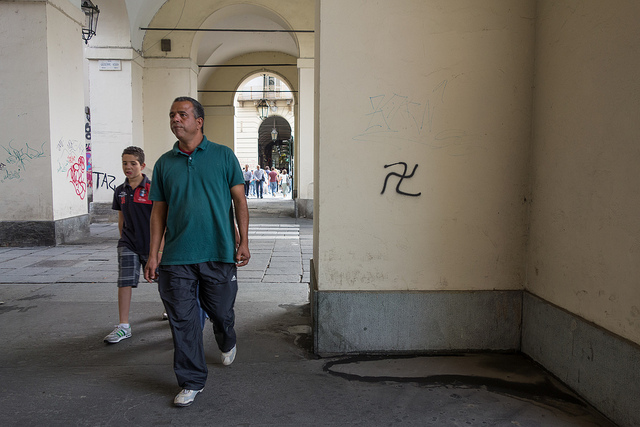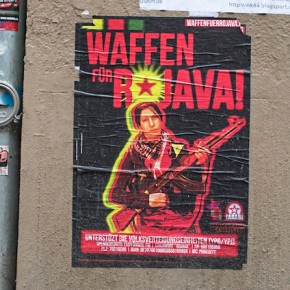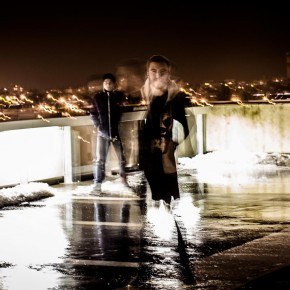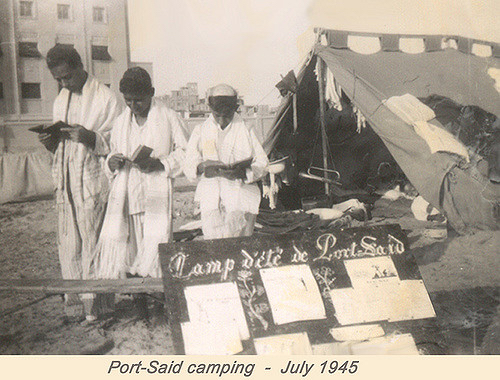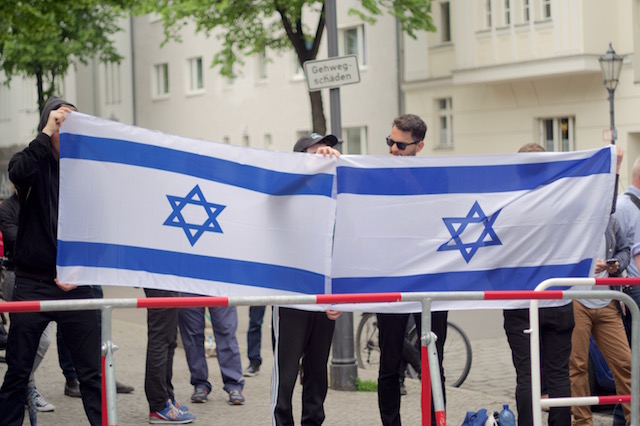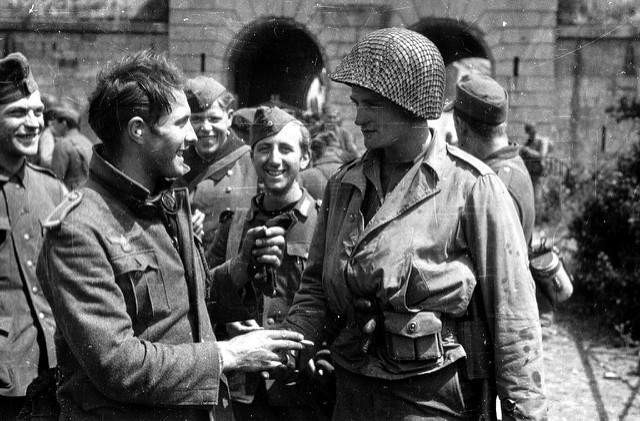War is hell, or so the adage goes. Especially when we think back to the twentieth century, to events like Dresden, and Hiroshima. 2014 was an especially poignant year in this regard, as Europe observed the 100th anniversary of WWI, and Russia went to war again, in the Ukraine. 100 years didn’t seem like a long time, in the grand scheme of things. The world remained stuck on the cusp of the 19th century.
When it comes to tragedies like the Nazi Holocaust, however, something harsher is required. The sheer scale of the killing, and its absolute sadism, makes the language of purgatory decidedly underwhelming, to describe the sheer evil that was involved. Without a doubt, the Nazis own this brand of darkness. No act of genocide is without a Hitler reference.
Given the amount of people that have been killed since the end of the Cold War, with over a million Iraqi deaths by a combination of combat and UN sanctions between 1991 and 2011, and over 200,000 deaths across in Syria, between 2011 and 2014, it makes one want to look for counter-narratives. For survivor stories. For first-person accounts of the cruelty.
The idea is not so much to call witness, yet again, to the ongoing cycle of mass killing, which has transpired unabated, for the last ten decades. Rather, the it’s to resurrect discussion about such events; that they continue to take place, and inform who we are, why is why events like the Holocaust preoccupy us so. It’s a way of interrogating the present.
Starting with this account by Witold Pilecki, of his decision to enter Auschwitz voluntarily, the Polish resistance fighter’s story is one of the very first disclosures of the mass slaughter that took place in the camp. His text has been edited sparingly, to respect the original translation, warts and all. The first of several reprints, this series will range widely geographically, as well as historically.
****
On 19 September 1940 – the second street round-up in Warsaw. Several people are still alive, who saw me walk alone at 6:00 AM. and stand in the “fives” arranged of people rounded up in the street by SS men. Then we were loaded into trucks in Wilson Square and carried to the Cavalry barracks. Upon registration of our personal data and taking away any sharp-edged tools (under threat of shooting down if just a safety razor blade was found on anybody later) we were carried into a manège, where we stayed during 19 and 20 September.
During those several days, some of us could get acquainted with a rubber baton falling down upon their heads. Nevertheless, it was within the limits of acceptable measures, for people accustomed to such ways of keeping law by guardians of order. In that time, some families bribed out their loved ones free, having paid huge sums to SS men. In the night, we all slept side by side on the ground. A large reflector placed by the entrance lit the manège. SS men with machine guns were arranged in the four sides.
There were one thousand eight hundred and several tens of us. I personally was upset by the passiveness of the mass of Poles. All those rounded up became imbibed with a kind of a psychosis of the crowd, which in that time expressed itself in that, that the whole crowd was similar to a herd of sheep.
I was haunted by a simple idea: to agitate the minds, to stir the mass to an action. I proposed to my companion Sjawek Szpakowski (I know he was alive until the Warsaw Uprising) a common action in the night: to get the crowd under our control, to attack the posts, in which my task would be – on my way to the toilet – to “brush against” the reflector and destroy it. But the purpose of my presence in this environment was quite different, while the latter option would mean to agree to much smaller things. In general, he considered this idea to be out of the sphere of fantasy.
Transportation
On 21 September, in the morning, we were loaded into trucks and, accompanied by escort motor cycles with machine guns, we were transported to the West Railway Station and loaded into goods vans. Apparently, lime had been transported by those vans before, as the whole floor was scattered with it. The vans were locked up. We were on transport the whole day. Neither drink nor food was given. After all, nobody wanted to eat. We had some bread given out to us on the preceding day, which we did not know how to eat and how to value. We only desired something to drink very much.

Under the influence of shocks, lime was getting powdered. It was rising into the air, exciting our nostrils and throats. They did not give us any drink. Through interstices of planks with which the windows were nailed up, we saw we were transported somewhere in the direction of Czestochowa. About 10:00 PM, the train stopped in some place, and it continued its way no more. Shouts, cries were heard, opening of railway vans, barking of dogs.
In my memories, I would call that place the moment in which I had done with everything that had existed on Earth so far, and began something which was probably somewhere outside me. I say it not to exert myself to some weird words, descriptions. On the contrary, I think I do not need to exert myself to any nice-sounding but inessential words. So it was. Not only the gun butts of SS men struck our heads – something more struck them also. All our ideas were kicked off in a brutal way, to which ideas we had been acquainted on the Earth (to some order of matters, i. e. law). All that fizzled out. They tried to strike us most radically. To break us mentally, as soon as possible.
The hum and clatter of voices was approaching gradually. At last, the door of our van was opened vehemently. Reflectors directed inside blinded us.
“Heraus! Erraus! Erraus!” Shouts sounded out, while SS men’s butts fell upon the shoulders, backs and heads of my colleagues.
We had to land outside quickly. I sprang off and, exceptionally, I did not get any blow of a gun butt; while forming our fives, I happened to get to the centre of the column. A pack of SS men were beating, kicking and making incredible noise. Dogs, set on us by the ruffian soldiers, were jumping at those who stood in the edges of the fives. Blinded by reflectors, pushed, kicked, assailed by dogs, we were suddenly placed in such conditions, in which I doubt if any one of us had been placed before. The weaker of us were bewildered to such a degree, that they formed a really thoughtless group.
We were driven forward, towards a larger group of concentrated lights. On the way, one of us was ordered to run towards a pole aside from the road and a machine gun burst was let off at him at once. Killed. Ten colleagues were pulled out of our ranks at random and shot down on the way with the use of machine guns, under “joint and several responsibility” for an “escape”, which was arranged by the SS men themselves. All the eleven people were being dragged on straps tied to one of the legs of each of them. Dogs were irritated by the bleeding corpses and were set on them. All that was accompanied by laugh and scoffs.

We were approaching the gate in a wire fence, on which an inscription: “Arbeit macht frei” (Work makes you free) was placed. Later on, we learned to understand it well. Behind the fence, brick buildings were arranged in rows. Among them there was a vast square. Standing among a line of SS men, just before the gate, we had more quiet for a while. The dogs were kept off. We were ordered to dress up our fives. Here we were counted scrupulously – with the addition, in the end, of the dragged dead corpses. The high, and at that time still single-line fence of barbed wire, and the gate full of SS men brought a Chinese aphorism to my mind: “On your coming in, think of your retreat, then on your coming out you will get unharmed”… An ironic smile arose inside me and abated… of what use would it be here?
Behind the wires, on the vast square, another view struck us. In somewhat fantastic reflector light creeping on us from all sides, some pseudo-people could be seen. By their behaviour, similar rather to wild animals (here I certainly give offence to animals – there is no designation in our language for such creatures.) In strange, striped dresses, like those seen in films about Sing Sing, with some orders on coloured ribbons (I got such an impression in the flickering light,) with sticks in their hands, they assailed our colleagues while laughing aloud. By beating their heads, kicking those lying on the ground in their kidneys, and other sensitive places, jumping with boots upon their chests and bellies – they were inflicting death with some kind of nightmarish enthusiasm.
‘Ah! So we are locked up in a lunatic asylum!…’ a thought flashed inside me. ‘What a mean deed!’ I was reasoning by the categories of the Earth. People from a street round-up – that is, even in the opinion of Germans, not charged with any guilt against the Third Reich. There flashed in my mind some words of Janek W, who had told me after the first street round-up (in August) in Warsaw. “Pooh! You see, people caught in the street are not charged with any political case – this is the safest way to get into the camp.” How naively, over there in Warsaw, we tackled the matter of Poles deported to the camps. No political case was necessary to die here. Any first comer would be killed at random.
In the beginning, a question was tossed by a striped man with a stick: “Was bist du von zivil?” (What’s your civilian job?) An answer like priest, judge, (or) barrister, resulted in beating and death.
Before me, a colleague stood in a five, who, upon the question tossed to him, answered: “Richter” (judge) . A fatal idea! In a while, he was on the ground, beaten and kicked.
So, educated classes were to be done away first of all. Upon that observation I changed my mind a bit. They were not madmen. They were some monstrous tool used to murder Poles, which started its task from the educated classes.
Translated from the Polish by Jacek Kucharski. Published under a Creative Commons license. Photographs courtesy of Joel Schalit.
